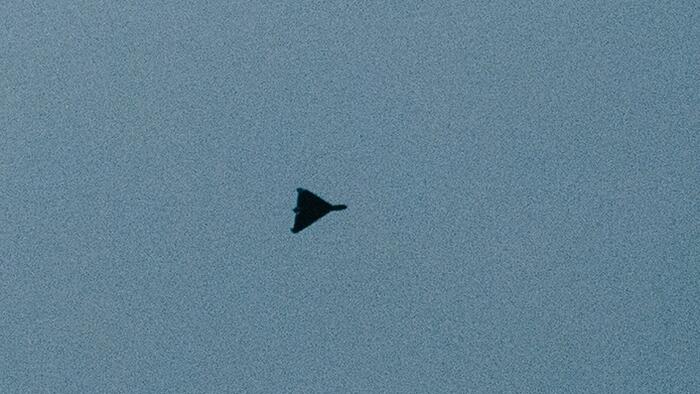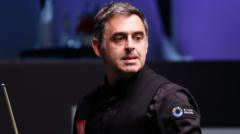Will Downing Russian Drones in Ukraine Spark NATO Conflict? Medvedev Weighs In

Published: 2025-09-16 06:45:00 | Category: World-Economy
Recent statements from Russian Security Council Deputy Chairman Dmitry Medvedev have escalated tensions between Russia and NATO, warning that shooting down Russian drones over Ukraine could lead to direct conflict between Moscow and the military alliance. This comes after incidents involving Russian drones allegedly entering Polish and Romanian airspace, raising concerns about the potential for a wider confrontation.
Last updated: 03 October 2023 (BST)
Key Takeaways
- Medvedev warns NATO against shooting down Russian drones, stating it could lead to war.
- Russian drones have reportedly breached Polish and Romanian airspace.
- The Kremlin suggests a de facto state of war already exists between NATO and Russia.
- Ukraine continues drone attacks on Russian territory, resulting in civilian casualties.
- Medvedev criticises the Estonian Defence Minister's visit to Ukraine.
Escalating Tensions: A Closer Look
In a tense geopolitical climate, Medvedev's comments reflect Russia's sensitivity to NATO's involvement in the ongoing conflict in Ukraine. The warning regarding shooting down Russian drones is significant as it suggests that Moscow perceives any military action by NATO as an act of aggression that could warrant a military response.
Background on Recent Drone Incidents
The recent incidents involving Russian drones crossing into NATO territory have heightened fears of an unintended escalation. According to reports, two Russian drones were tracked in Romania's airspace over the weekend. Romanian military forces responded by scrambling F-16 fighter jets. However, the Russian drones returned to Ukrainian airspace without any engagement, illustrating the delicate balance of military operations in the region.
Medvedev's Remarks and Their Implications
Medvedev's Telegram statement reflected a stern warning against the notion of establishing a no-fly zone over Ukraine. He stated, "Seriously, implementing the provocative idea of Kiev and other idiots to create a 'no-fly zone over Ukraine' and allowing NATO countries to down our drones will mean only one thing: NATO's war with Russia." This rhetoric underscores the potential for miscalculations that could lead to direct confrontation.
What It Means for NATO and Russia Relations
The dynamics between NATO and Russia are increasingly complex. With Medvedev’s warning, the potential for a military confrontation looms larger. NATO has been supportive of Ukraine, providing military assistance, and any perceived escalation of hostilities could lead to significant geopolitical ramifications.
A De Facto State of War?
Kremlin spokesman Dmitry Peskov's assertion that NATO and Russia are already in a "de facto state of war" adds another layer of urgency to the situation. This statement reflects a mindset that views NATO's support for Ukraine as a direct threat to Russian sovereignty and security. As tensions escalate, both sides must navigate their actions carefully to avoid a catastrophic misstep.
The Impact on Civilian Life in Ukraine and Russia
While military actions continue, the impact on civilian life is severe. Reports from Belgorod Oblast indicate casualties from drone attacks originating from Ukraine. Russian authorities reported that two women were killed, and several others were injured in recent cross-border strikes. Such incidents highlight the broader humanitarian consequences of the ongoing conflict.
The International Community's Response
The international community remains closely monitoring these developments. The prospect of a wider conflict involving NATO and Russia is one that many leaders are keen to avoid. Diplomatic efforts continue, but statements like Medvedev's may complicate the situation further.
Future Implications
As the situation evolves, it is crucial for both NATO and Russia to communicate effectively to prevent misunderstandings. The potential for a miscalculation leading to a broader conflict remains a significant concern. Analysts suggest that both sides must tread carefully, balancing military readiness with diplomatic dialogue.
Conclusion: What Lies Ahead?
The current state of affairs between NATO and Russia is precarious. The warnings from Medvedev serve as a reminder of the thin line that exists between military posturing and outright conflict. As both sides navigate these turbulent waters, the importance of dialogue and caution cannot be overstated. How will NATO respond to these provocations, and what steps can be taken to de-escalate tensions? The answers to these questions will be crucial in shaping the future of the region.
FAQs
What did Medvedev warn NATO about?
Dmitry Medvedev warned NATO that shooting down Russian drones over Ukraine would lead to a state of war between NATO and Russia.
What incidents have occurred with Russian drones recently?
Russian drones have reportedly breached Polish and Romanian airspace, raising concerns about potential military confrontations with NATO.
How has Ukraine responded to the conflict?
Ukraine has continued its drone attacks on Russian territory, resulting in civilian casualties and military engagement.
What is meant by a de facto state of war?
A de facto state of war refers to a situation where two entities are in conflict without formally declaring war, indicating ongoing hostilities and military actions.
What are the potential consequences of this conflict?
The potential consequences include a wider military confrontation, further humanitarian crises, and significant geopolitical shifts in the region.



